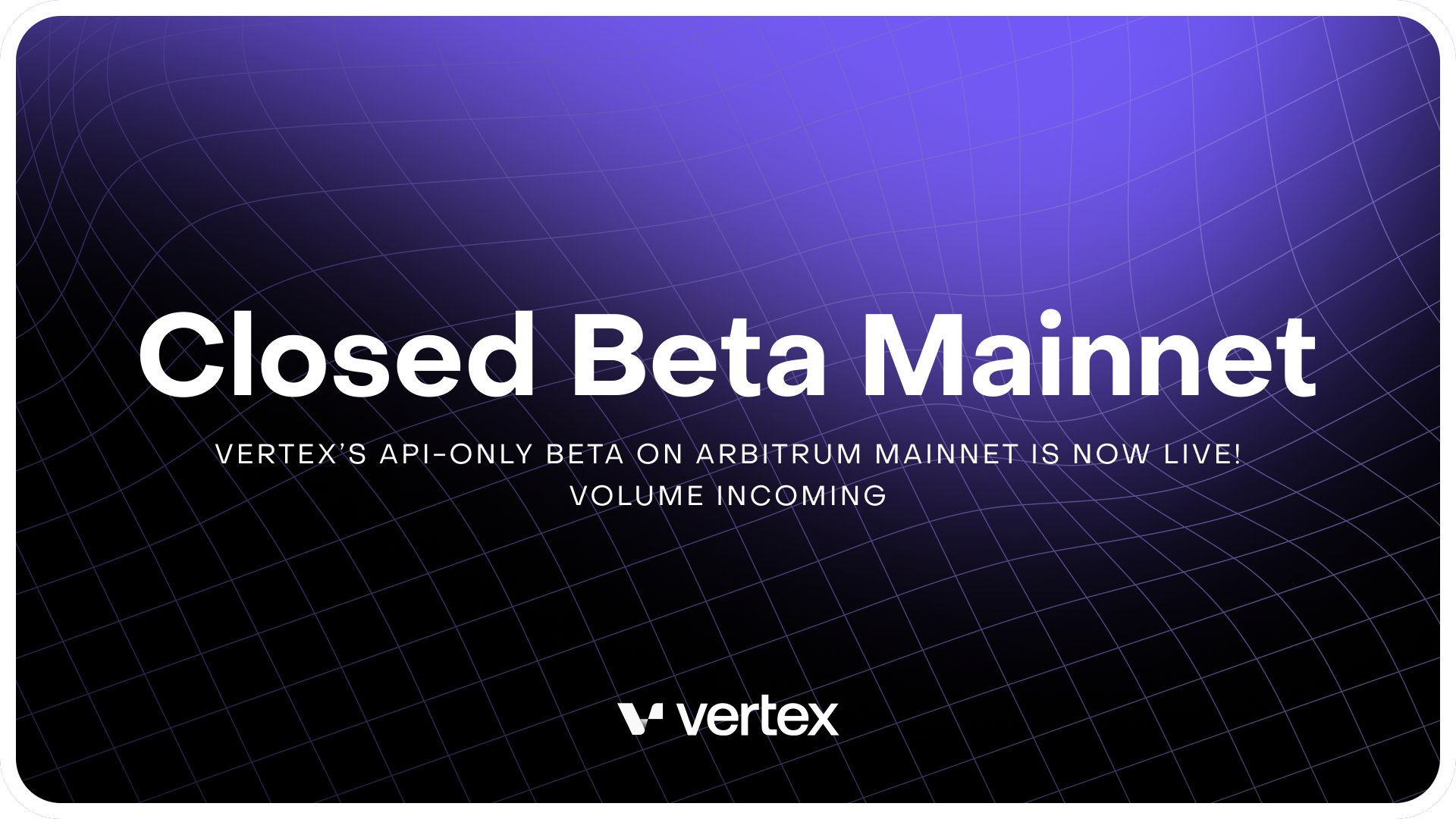Vertex is a new decentralized crypto exchange positioning itself as an alternative to centralized exchanges that have faced greater regulatory scrutiny.
It launched its API-only Beta Mainnet on Arbitrum on March 8. This marks the first of three phases of its public Mainnet launch. It will be followed by a private beta and a public launch. According to Vertex, the second phase – Private Beta – will begin in a few weeks, and “…cohort of users will be invited to provide feedback on the latest version of the Vertex dApp and to test the UI.”
The DEX noted that “The Beta release enables partner institutions, market maker firms, and other participants to plug into the Vertex sequencer via API and execute automated trades …”
2/ The Beta release enables partner institutions, market maker firms, and other participants to plug into the Vertex sequencer via API and execute automated trades – testing the orderbook and other components of the DEX in the run-up to the launch of a front-end dApp.
— Vertex (@vertex_protocol) March 8, 2023
It is built on Arbitrum, a layer 2 scaling solution for Ethereum. It aims to provide fast, cheap, and secure trading for institutional and retail investors and offers features such as order-book, ramps and bridges, and easy liquidity provision.
In a tweet, Vertex said that it is “…the first vertically-integrated DEX on Arbitrum, facilitating spot, perpetuals, and integrated money markets with universal, cross-margined accounts.”
8/ Vertex is the first vertically-integrated DEX on @arbitrum, facilitating spot, perpetuals, and integrated money markets with universal, cross-margined accounts.
— Vertex (@vertex_protocol) March 8, 2023
Volume incoming. Stand by for launch https://t.co/qjCDZEKOPT
Taking Back Control from CEXs
In an interview, Vertex co-founder and CEO, Darius Tabatabai said, “It provides a high-speed, low-latency, high-throughput way for primarily high-frequency traders…”.
Usually, DEXs have high latency compared to CEXs when processing transactions since orders are completed directly on a blockchain. Vertex will process transactions off-chain to achieve transaction speeds similar to that of CEXs.
Unlike most DEXs, Vertex won’t rely on user-supplied liquidity through automated market makers. Instead, it employs an order book, a model similar to that used by centralized exchanges. “You can never scale the way we’re planning to scale if you’re just AMM driven,” Tabatabai said.
The launch comes amid increased criticism and regulatory scrutiny of centralized exchanges to increase transparency. In a letter to Binance and Binance.US last week, US Senators demanded detailed accounting of their finances, claiming that whatever is available publicly “…suggests that the exchange is a hotbed of illegal financial activity…”.
Written by

Samwel
Samwel is a seasoned financial analyst with over 5 years of experience covering the global stock market, Forex, and crypto market.
For more insights, explore our Binance platform overview to make informed decisions.
Connect with Samwel on LinkedIn







